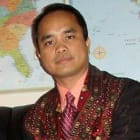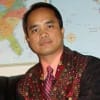commentary Commentary
Commentary: Myanmar buries its head in the sand, one year after the Rohingya crisis
The Rohingya crisis has become the single-most pressing issue in Myanmar but it remains unresolved one year after, says one observer.
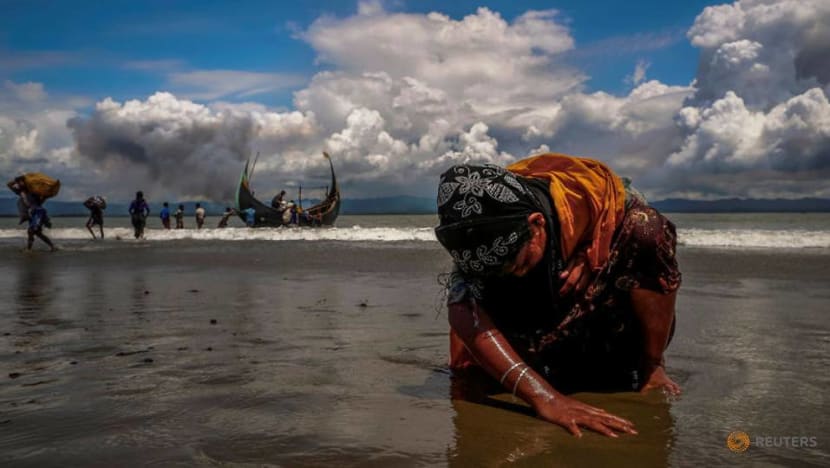
An exhausted Rohingya refugee woman touches the shore after crossing the Bangladesh-Myanmar border by boat through the Bay of Bengal, in Shah Porir Dwip, Bangladesh September 11, 2017. (Photo: REUTERS/Danish Siddiqui/File Photo)
NEW DEHLI: Aung San Suu Kyi’s speech on democratic transition this week was particularly notable for one thing – its omission of the word Rohingya.
It was notable because the Rohingya crisis was the issue most present at her address and the international community watching wanted to hear her speak on. But she didn’t use this phrase during the question and answer either.
Commenting on the situation in Rakhine state, she said:
There are not just the Muslims in Rakhine, like most people think. There's Hindus there, there are … small ethnic groups and I would like you to take interest in these small ethnic groups because some of them are disappearing very quickly.
It may be an overstatement to say “most people” think that there are only Muslims in Rakhine state when many also know of the Rakhine Buddhist group which forms the majority of the state’s population, as well as other minority groups including Thet, Kamein, Chin, Mro, and Maramagri who practice different religions.
But the scale of violence the Rohingya have gone through, the number of people fleeing across the international border and the degree of international attention make the Rohingya crisis stand out.
Moreover, Rohingya is not listed in the list of Myanmar ethnic groups. So it’s not an exaggeration to say that the Rohingya population in Myanmar has been systematically discriminated against.
HAVE TO TAKE THEM BACK
Myanmar continues to maintain that the Rohingya are illegal Bengali migrants from Bangladesh. But because of international pressure, the country is now willing to take them back under the 1992 repatriation pact signed by the two countries if, that is, individuals can prove they were residents of Myanmar.
There is an agreement between Myanmar and Bangladesh for the repatriation of refugees, as well as a Memorandum of Understanding between Myanmar and two United Nations agencies.
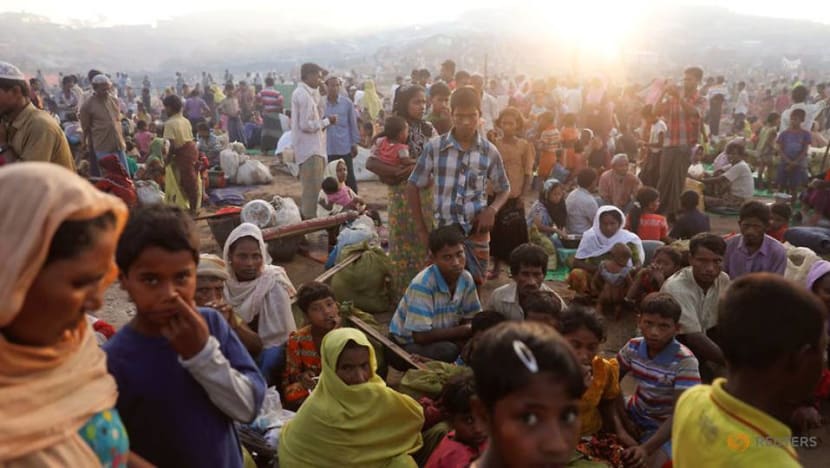
It has been widely reported in the international media that the Rohingya want to return to Myanmar. But before going back, they require some assurances from the Myanmar government, including safety and security, recognition of their ethnic identity, and eventual citizenship.
The Myanmar government has talked about addressing those issues in terms of abiding by the country’s existing laws, including a pathway to citizenship. However, there has been no official assurance or guarantee that their Rohingya identity will be recognised.
Instead, there is a lingering apprehension within the Rohingya community that they may likely go through the same situation of censorship, discrimination and restrictions after returning to Myanmar.
During her lecture, Aung San Suu Kyi did not provide any assurance or guarantee on these important issues.
READ: Lived in Rakhine for generations, yet Rohingya Muslims 'do not belong in Myanmar', a commentary
READ: The hard truth is that Rohingya refugees are not going home, a commentary
NO ASSURANCES OR GUARANTEES
It is important to understand that Aung San Suu Kyi and her NLD government alone cannot address the Rohingya crisis.
After all, she herself is from the majority ethnic group and a politician, who like many others politicians, wants to remain in power, and therefore, pays attention to the wishes or sentiments of her electorates.
She also seems to have put the ball in Bangladesh’s court when she said:
The returnees have to be sent back by Bangladesh. We can only welcome them at the border … I think Bangladesh would also have to decide how quickly it wants the process to be completed.
While Aung San Suu Kyi has a point, is it realistic to believe that Bangladesh will force out the refugees without their consent?
Among others, agreements require voluntary repatriation. It is unlikely that Bangladesh will use force to drive out the refugees from their soil, which goes against established refugee conventions.
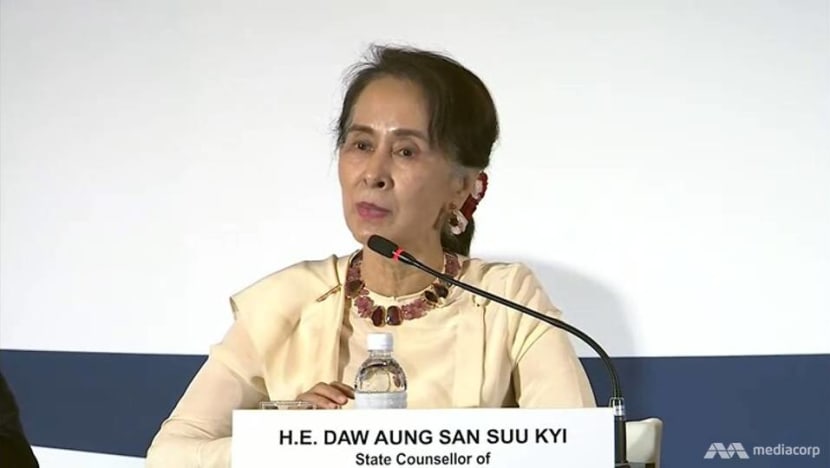
UNLIKE MYANMAR MIGRANTS IN THAILAND
Another somewhat surprising comment the state counsellor made during the lecture was the situation in Thailand and Bangladesh. It was understandable when the 1991 Nobel Peace laureate said she shared deep sympathy and concern for all displaced persons, especially women and children in Thailand where there are about 4 million people of Myanmar origin.
It was also understandable that she said her government wanted to work together with the Bangladesh government similar to what they did with Thailand.
But the two circumstances are different. First, the Myanmar population in Thailand are either migrant workers or people who fled Myanmar during past several decades of military rule in the country.
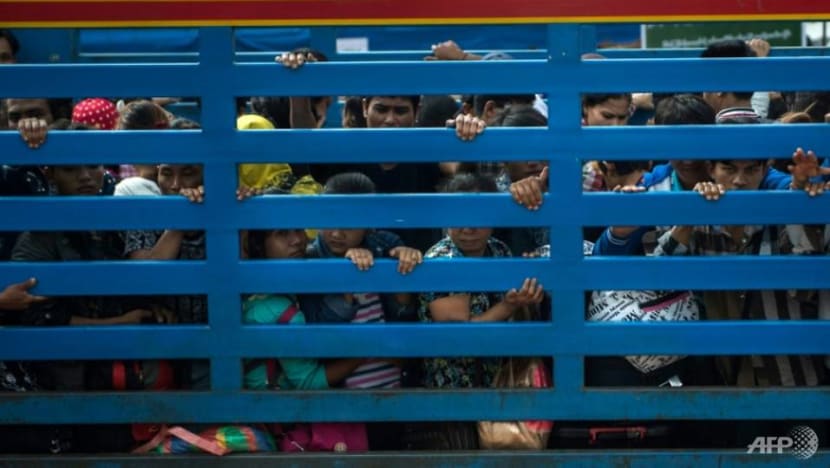
As long as they are willing to stay in Thailand legally, the Myanmar government is either facilitating or assisting them. And if they voluntarily decide to go back to their country of origin, they enjoy full citizenship rights as they are included among the “135 national races” or ethnic groups officially recognised by Myanmar under its 1982 citizenship law.
TERRORISM, DEMOCRATISATION
Aung San Suu Kyi also chose to talk about the danger of terrorist activities and the risk of intercommunal violence posed by the Arakan Rohingya Salvation Army (ARSA).
While the international community should condemn terrorism in all its forms including the activities of ARSA, it is also important to explore and make efforts to address the root causes.
While ARSA may pose an existential threat, failure to address the fundamental concerns of the Rohingya people and using brutal force to suppress about a million or so population is not the solution.
Aung San Suu Kyi is right to be concerned also in her speech about the country’s democratic transition, as her government faces several challenges under the current arrangement where power is shared between the military and the civilian leadership.
Yet despite several important issues Myanmar has to deal with, the Rohingya crisis has become the single-most pressing one. And unfortunately, the situation has also hampered developments in other areas for Myanmar, including economic growth.
HELP THE ROHINGYA
It is important that the Myanmar leadership as well as civil society groups and the general public in Myanmar do their bit to help resolve the Rohingya refugee crisis, as well as the ongoing conflicts between the Myanmar military and the country’s ethnic armed groups.
Only with peace can there be rule of law, which brings stability, economic growth and development, all of which were issues Aung San Suu Kyi rightly pointed out are Myanmar’s goals in her speech.
Dr Nehginpao Kipgen is Associate Professor and Executive Director of the Centre for Southeast Asian Studies, Jindal School of International Affairs, O P Jindal Global University. He is the author of three books on Myanmar, including "Democratization of Myanmar".








